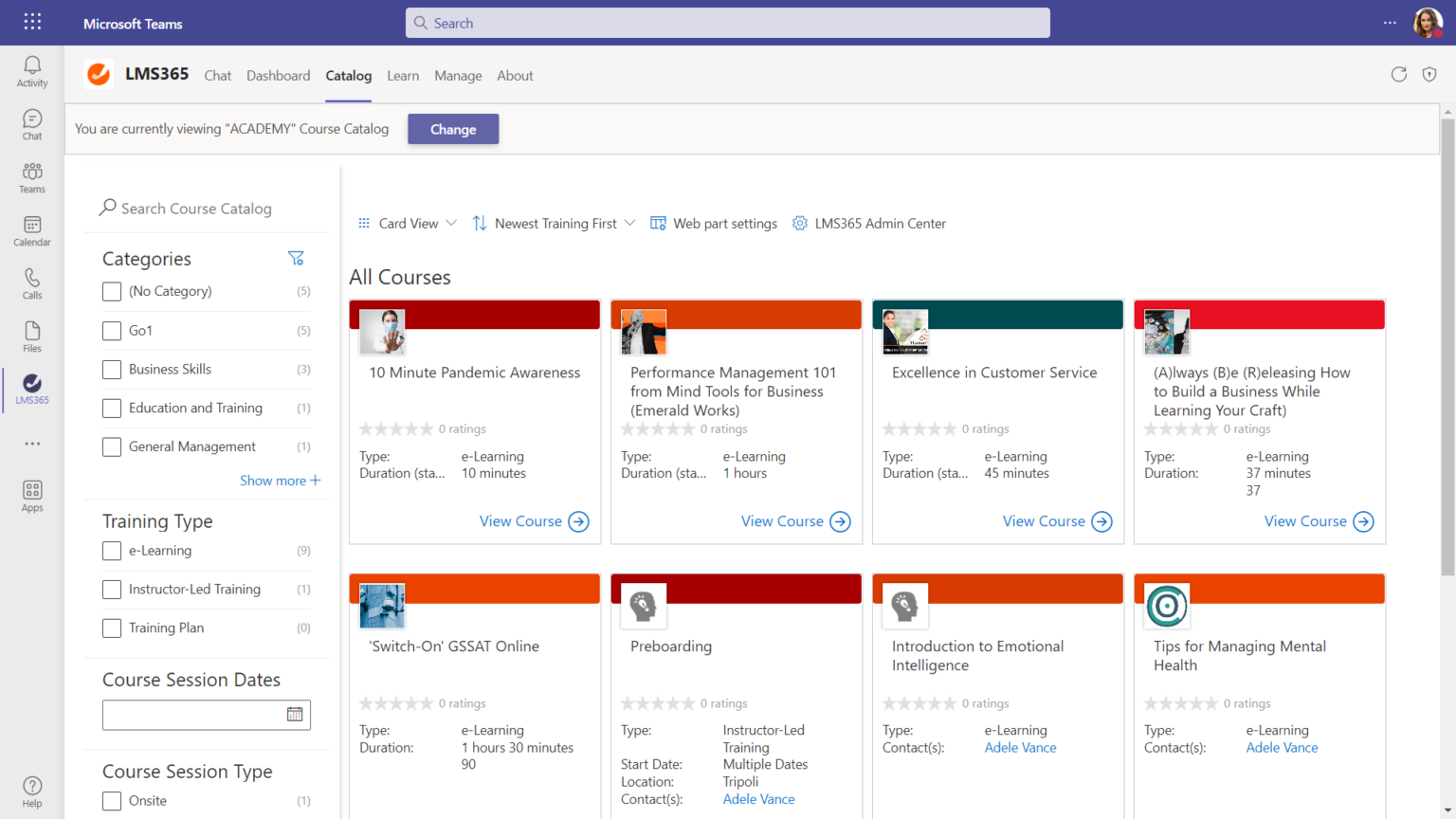LMS365, a learning management system built into Microsoft 365 and Teams, raises $20M
Danish company LMS365, an online learning management system (LMS) built for use inside Microsoft products, has raised $20 million in its first institutional round of funding.
Used by companies including logistics giant Hellmann and soda bottling franchise G&J Pepsi, LMS365 allows users to create their own courses from scratch or import them from a third-party such as Go1 or LinkedIn Learning, which LMS365 announced a partnership with just last month.
Embedding a learning management system directly into workers’ core everyday tools is one of LMS365’s core selling points versus incumbents in the LMS space such as Workday, Eloomi, or TalentLMS.
“LMS365 does not invent a technology problem, but meets the professionals where they are,” CEO Rasmus Holst explained to TechCrunch.
Under the hood
With the LMS365 course creator and learning module builder, users can drag-and-drop elements from existing content housed in Microsoft Office software including PowerPoint, Word, and Stream. Or they can import pre-existing courses or quizzes constructed elsewhere and stored in the SCORM or AICC format, which can be useful for general industry-specific training for cybersecurity, or regulatory compliance.

LMS365: Creating a course Image Credits: LMS365
From the end-user perspective, all this means that new-hires can be onboarded directly through Microsoft Teams, or receive ongoing training in all manner of disciplines from customer service to managing mental health.

LMS365: Course and content management Image Credits: LMS365
Managers can also track learner progress and present relevant data via Microsoft Power BI visuals.
LMS365: Tracking and reporting Image Credits: LMS365
The story so far
LMS365’s history can be traced back to 2003, when dentist Bjarne Mortensen founded a company called Elearningforce that was focused squarely on on-premise deployments of Microsoft Sharepoint. In the intervening years, Elearningforce evolved to a cloud-based product with support for Teams and Microsoft 365, and it recently introduced support for Viva, Microsoft’s so-called “employee experience and engagement” platform.
Mortensen retired in 2018 and sold his stake to entrepreneur Johan Wedell-Wedellsborg and Ole Kristoffersen and Steen Skallebæk, founders of Danish bakery chain Ole & Steen. Holst joined LMS365 last year from secure messaging company Wire, where he previously served as chief revenue officer.
While its corporate name technically remains Elearningforce, the company transitioned to the LMS365 brand back in 2015, intended to reflect its focus on Microsoft.
But why focus on delivering training through Microsoft, specifically, and not Zoom or Google’s cloud-based software suite? According to Holst, it’s all about focus and addressable market size, not to mention Microsoft’s expansive software suite spanning hosting, communication / collaboration, and big data insights.
“It’s [Microsoft software] a global, coherent market of 350 million users — so our platform is easy to access and is placed in an app millions use everyday,” Holst said. “Also, Microsoft provides a toolset for the [whole] business — LMS365 uses Azure for hosting, Teams for delivering their application, VIVA for recommending courses, and Power BI for data extraction.”
Moreover, by focusing on Microsoft, this minimizes any risks associated with trying to support too many software ecosystems. This was arguably more of an issue for a business that has grown organically without institutional funding.
“For LMS365 to build technically on other platforms and exposing ourselves to technical debt in that way, is not a trade-off that would have been beneficial to us as a bootstrapped business,” Holst said.
A little more than half of LMS365 users are based in the U.S., almost a third are located in EMEA (Europe, Middle East, and Africa) and the remainder are spread throughout the rest of the world.
“Typical customers are SMEs with 200 to 1,000 users,” Holst said. “Our primary markets (around 80%) are services industry, logistics, manufacturing, automotive, health care and government.”
LMS365’s first external investment was led by New York-based Blue Cloud Ventures, with participation from Singapore’s Kamet Capital and existing shareholders. The company said that it plans to use its fresh cash injection to double down on its global growth through acquiring distribution partners in the U.S., Germany, and Australia.
“We see a clear window of opportunity in the market where we can accelerate,” Henrik Jeberg, LMS365 chief strategy officer, said in a statement. “We will use M&A strategically going forward, including in relation to product development.”




